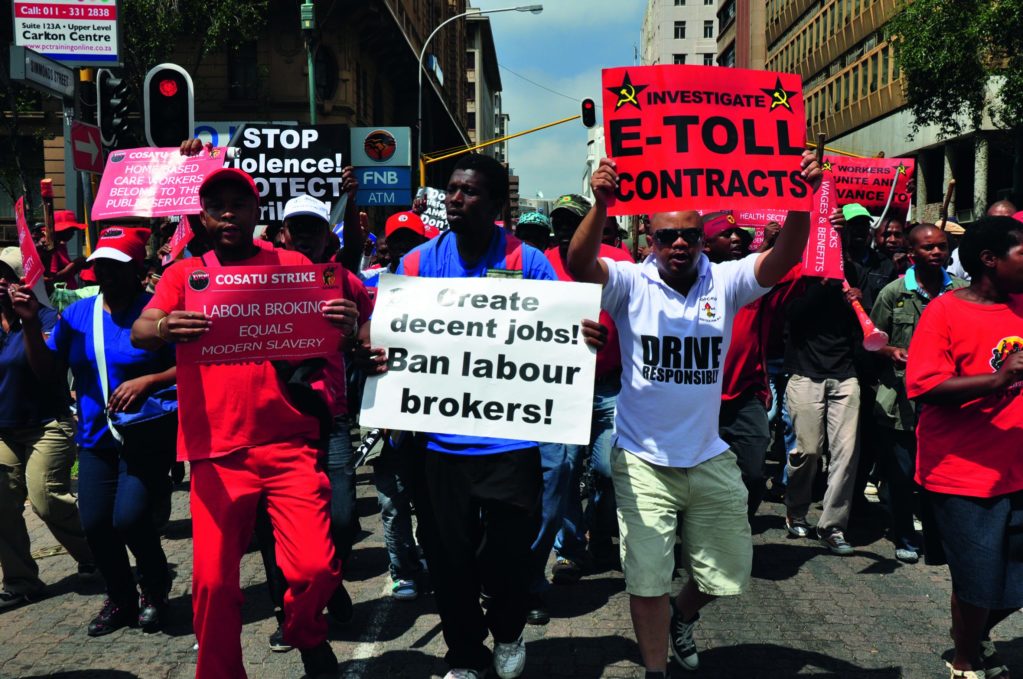Struggle songs pierced the air to the sound of marching feet. Protestors jabbed sticks and steel poles to the skies.
One of them was petrol attendant, Thabo Moloedi, who makes the 80km journey from Sasolburg to Johannesburg along the N1 every day. He says tolls will hit millions like him in the pocket.
“Let’s ban them all,” he says.
Roads are the artery of every country and in Africa they are like gold dust. South Africa has spent R20 billion ($2.6 billion) on 185km of spanking new highways that would be welcome from Harare to Cairo.
The problem is now the government wants the people to pay for them. That will mean motorists forking out R14.2 billion ($1.85 billion) day by day. Every time motorists drive up or down the N1, N3, N12 R21, near Johannesburg, from April 30, they will have to pay 30c for every kilometre calculated by sensors in huge overhead gantries. Those who buy a so called e-tag will pay directly from their bank account —those who don’t will be sent a more expensive bill through the post. If you don’t play ball, you could be prosecuted and new laws are on the way to cover this.
Loading...
The plan has led to months of grumbling and accusations that the car-driving class is being used as a cash cow. It has also sparked one of the biggest protests seen in democratic South Africa. The Gauteng province protest was one of 34 across the country, which called on more than two million union members. Tens of thousands marched in Johannesburg alone.
“Tolls are a big burden and are going to fuel inflation,” says Lesiba Seshoka, the national spokesperson for the National Union of Mineworkers—the most powerful union in the land.
“We are still a developing country yet government is subjecting us to pay tolls. Whose pockets are going to be filled with this money?” says Dikshi Patel, a 45-year-old worker in the airline industry.
“The government has put the cart before the horse on this issue. A reliable, affordable and safe transport system should be a priority. If you start with the e-tolling system without ensuring that people can move freely from one place to another, you are disadvantaging these people, says Zingiswa Losi, the second deputy president of Cosatu the country’s trade union federation.
The South African Road Agency Limited (Sanral) is building through borrowing on local capital markets. It claims that if roads were funded purely by tax, citizens would still be waiting for their smooth highways. Sanral calls the e-tag a “user fee” and denies it is double taxation for those who already pay car tax and fuel levy. During his annual budget speech, in Cape Town, on February 22, Finance Minister, Pravin Gordhan, assigned R5.8 billion to Sanral to help pay for the roads. This money allowed Sanral to cut toll fees from 60c to 30c per kilometre for cars in a bid to silence the howl of outrage. It appears to have failed.
Gordhan defended the cost of the toll roads saying they will ease traffic congestion. “Users benefit through lower vehicle operating costs, time savings and improved safety,” he says.
South Africans will also have to dig deeper to pay an increase in the general fuel levy on petrol and diesel, which will rise by 20c a liter on April 4. The money will go to pay for the new highways and motorists are not happy about that either.
Loading...
